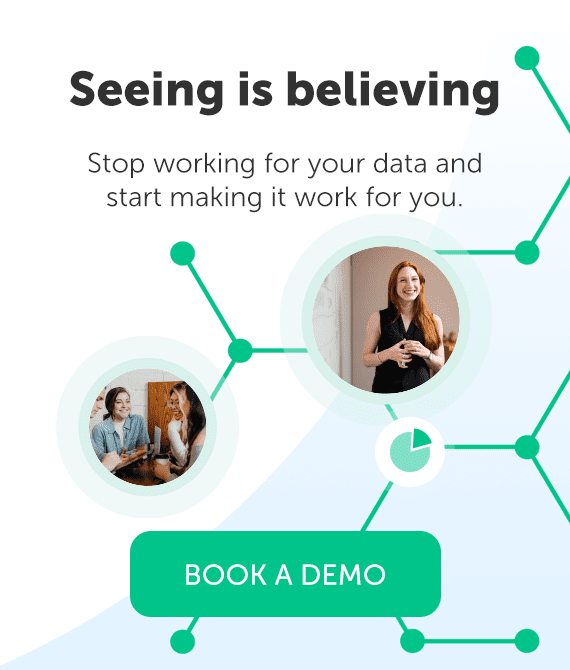With 72 percent of accounting firms struggling to win new business and a third of clients considering a switch to a competitor, it’s clear that current retention and acquisition strategies aren’t working.
It’s time to develop new strategies for gaining new business and holding onto existing clients.
Read on for advice on business development for accounting firms from experts Ramon Ray, Lauren Clemmer, Charlie Burns, and others.
- Build a Brand
- Engage Clients Before They Sign On
- Nurture Client Relationships
- Cultivate Niche Subject Matter
- Develop Deeper Relationships With New Service Offerings
- Personalize Client Engagements
- Pursue Innovation
- Adopt the Latest Technologies
- Get Data Smart
- Skill Up
- Tap Into New Social Networks
- Pave the Way for Successors
- Make Room for More Profitable Clients
- Embrace Your Role as a Client Advisor
- Know Your Clients and Their Preferences
- Customer Experience Rises in Importance
- Firms Must Specialize to Differentiate
- Staffing Up for Business Development
- The Team Approach Prevails
- Technology Is the Foundation of New Business
How to Differentiate Your Accounting Firm
1. Build a Brand
The accounting service market is saturated. With 1.25 million accountants and auditors in the United States, it’s difficult to stand out.
Branding is a visual and conceptual way to convey what’s special about your firm, so you’re recognized and remembered. While many elements contribute to a brand—including a company name, logo, slogan and design— your main focus should be encouraging people to view your firm as the best choice.
“The best test of how well the firm’s branding is working [is] do potential clients feel they need what the firm offers? Better yet, does the branding bring a smile to their face?” said best-selling author and business development expert Ramon Ray.
In other words, your branding should evoke an emotional response that motivates someone to sign on as a client. Even better, it should make clients want to remain with your firm for the long haul.
2. Engage Clients Before They Sign On
Business development professionals should take steps to advance the brand with each interaction—even before working with a client.
As their experience with your brand is often what determines a client’s perception, it’s essential to focus on making every experience as enjoyable and valuable as possible.
Some ways top accounting firms create a great pre-engagement client experience:
Automate appointment scheduling
Take advantage of technology and web options that put more control in the hands of clients
Prep the client for the interaction
Send an email with a photo of the assigned accountant or invite the client to a free pre-tax webinar
3. Nurture Client Relationships
After you’ve won the business, the real work begins. To encourage return business and loyalty, continue nurturing those client relationships.
“Firms should not ignore clients that return year after year,” Ray said. “Those clients are not locked in, because it’s quite easy to switch accounting firms. Rather than get lackadaisical, it’s critical that business development professionals commit to staying top of mind with clients.”
Ray suggests something as simple as sending a box of chocolates on April 1 (or even earlier) with a reminder that tax time is right around the corner.
4. Cultivate niche subject matter expertise
Your unique knowledge and expertise is something that your competitors do not and will not have, making it a great opportunity for differentiation. The more your clients or prospects see your firm as an accounting authority, the more they will trust you with their accounting needs.
For some market facing ideas on where you can start:
- Become a sponsor or member of your regional or national CPA association and get involved on the association board.
- Attend industry conferences and engage partners for potential speaking opportunities.
- Publish thought leadership and education content on your accounting firm’s blog.
Each of these actions gives you more exposure to your clients and prospects as an accounting expert and builds your subject matter expertise.
5. Develop Deeper Relationships With New Service Offerings
It’s far more cost effective to keep a client than to acquire a new one. And firms with satisfied clients forecast an average of 7 percent higher revenues.
But most accounting firms leave revenue on the table, because their clients aren’t utilizing the breadth of the firm’s service offering. That’s why progressive firms = segment customers by services to identify opportunities to cross-sell or upsell more services.

Source: Accounting Today
Adding new service offerings is a sure-fire way to increase revenue with existing client accounts, as well as reduce the likelihood they’ll start shopping elsewhere for accounting services.
So, ask yourself: What new services can your firm offer now and in the future with some upfront planning?
6. Personalize Client Engagements
Business development professionals need to ensure that pre- and post-interaction engagement feels personalized.
To personalize interactions at scale, it helps to call upon a customer relationship management (CRM) solution to segment the customer database. Then it’s a matter of designing and executing relevant campaigns for each segment.
To keep it manageable and effective, Ray recommends these best practices:
- Define the strategic branding goals and then select a technology that can help achieve those
- Test messages and offers to see what resonates
- Segment the customer database to align with relevant messages and offers
- Start small by sending these messages to a subsection of the database
- Equip and train staff to deliver an experience that wows clients
7. Pursue Innovation
Most CPA firms are now taking innovative steps in practice management, like using value or fixed pricing. Your firm can do the same by offering set packages of services or taking a more consultative, value-add approach to client engagements.
CPA.com strategic advisor Gregory LaFollette predicts that a growing number of firms will offer boutique-style, value-priced “packages” to clients.
He shared these examples for tiered tax services:
Silver
Basic preparation with a 15-minute consultation after preparation
Gold
Adds a one-hour tax and overall financial planning consultation
Platinum
Adds unlimited, year-round phone/email access and representation before the IRS for any issues concerning this return
8. Adopt the Latest Technologies
With so many technologies available to help improve processes, deliver data insights, and open up new revenue streams, your accounting firm would be foolish not to take advantage.
While tools like tax prep software and document management systems are useful across firms of any size, larger firms are embracing other new technologies—such as CRM automation and workflow management—at a higher rate.
The results are improved operational efficiencies, spotting high-probability opportunities faster and more easily, and gaining relevant client insights that help craft their business development strategy. (Request a demo from Introhive to see how it all works).
9. Get Data Smart
Lauren Clemmer, executive director of the Association for Accounting Marketing, believes accounting firms need to become more data-informed to make more sophisticated business decisions.
“Smart firms dig into their data and analyze the source of their business,” Clemmer said. “By understanding what their most profitable and loyal clients value, they can strategically focus on developing new product lines and new business based on their strengths.”
Your firm can do the same. Review client billings and engagements to date to reveal practice areas or product lines that lead to greater client retention, loyalty or profitability.
10. Skill Up
Hand in hand with getting data smart, many CPA firms are finding the need to develop deeper data analytic skills to gain a better understanding of the business and market.
According to the Journal of Accountancy, “Mastery of data analytics can help businesses generate a higher profit margin and gain a meaningful competitive advantage. Some experts even predict that companies ignoring data analytics may be forced out of business in the long run.”
To gain a better understanding of your client data, your firm needs to hire and train the right people to analyze the data.
As Roshan Ramlukan, EY partner of global accounts, said, “The human element of data analytics is the most critical factor in building a successful program.”
By becoming more proficient in data analysis, accounting firms are able to derive better insights that enable them to customize their business development strategies, proactively support clients, and easily identify client buying patterns.
11. Tap Into New Social Networks
An impressive 94 percent of B2B buyers conduct online research before making a purchasing decision. According to LaFollette of CPA.com, this trend will continue.
“Clients will increasingly shop and screen professionals based solely on that professional’s digital presence, making your ‘digital brand’ and ‘digital footprint’ more and more important,” he says. “If your firm isn’t on par with or ahead of the industry—57 percent are on LinkedIn, 50 percent are on Facebook, 22 percent are on Twitter, and 15 percent are blogging—it’s time to establish a presence. The key is to be active, helpful, and genuine.”
12. Pave the Way for Successors
As a seasoned generation of accountants approaches retirement age, it’s essential for firms to make plans for the future of their business, staff and industry.
“The most important thing [leaders] can do is to find ways to pass their wisdom and knowledge on to the next-gen leaders in your firm,” Boomer Consulting President, Sandra Wiley, advises. “If they can adjust their focus from the day-to-day client work to focus on mentoring, teaching, and protecting, our profession will thrive.”
ConvergenceCoaching co-founder Jennifer Wilson echoes this sentiment.
“Make the changes needed to be a next-gen firm and retain your future leaders,” Wilson said. “Put together a next-gen advisory board and have them prioritize the changes they most want to see — then work with them to implement these changes. They are bright enough to generate solutions and implement them. Empower them and get out of the way!”
How to Retain More Clients
Don’t let your clients leave you for competitors or take their accounting needs in-house. Use the client retention best practices below to improve your firm’s retention rate and grow existing client revenue.
13. Make Room for More Profitable Clients
Unresponsive clients drain resources. It takes longer to serve them, taking your business development team away from cultivating more profitable clients and prospects.
To avoid spending too much time on clients with a low ROI, prioritize your clients based on the quality of the relationship. Relationship analytics software can help you do this fast.
It analyzes your entire firm’s network to identify mutual connections, measure relationship strength, and monitor activity can give you insights that can help accelerate sales velocity by leveraging the right relationships. (Request a demo from Introhive to see the technology in action).
14. Embrace Your Role as a Client Advisor
While most accountants aren’t keen on selling, being a client advisor isn’t really about that. It’s about building relationships with clients by making a concerted effort to understand their business and how you can help them make it better.
It takes firms beyond the CPAs who handle the taxes to trusted advisors. When you or your business development team meet with clients, leave selling at the door and instead focus on asking questions that help you identify their accounting needs and how you can help.
15. Know Your Clients and Their Preferences
Use the rich data you have to learn about clients and discover where there may be opportunities to cross-sell. For instance, are there tax clients who work for organizations that may also benefit from your accounting and auditing services?
Charlie Burns, a CPA and partner at Reid, Hanna, Johnson, grew her firm’s revenue by 33 percent in just 18 months—and half of that growth came from existing clients. So how’d she do it?
Her team created client profiles and made them accessible to the entire firm, making it easy for anyone to serve any client.
“If a partner manages 300 clients, it would be hard for them to effectively serve and manage all of them on their own,” Burns explained in her Accounting Today webinar. “And if they aren’t sharing information with their colleagues, it becomes next to impossible for the firm to provide quality, proactive service to each client as relevant client insights stay with the partner or relationship owner.”
“Everyone has their client base where they do the same thing over and over,” she continued. “However, each client is growing and changing every day. We try to look at existing clients, not just run them through the mill, and have conversations about what they are doing and the services we provide them. We couldn’t have done that without a deep understanding of the information we hold about our clients.”
Trends Every Accounting Firm Needs to Know
Pressing accounting firm business development trends to keep in mind if you want to stay relevant.
16. Customer Experience Rises in Importance
Nearly three-quarters of businesses (72 percent to be exact) reported switching CPA firms due to poor, reactive service. To hold onto clients, firms must commit to embracing and prioritizing the customer experience.
“The more immersed firms are in their clients’ businesses and the more focused they are on truly serving them, the better their chances are of keeping and expanding business with those clients. To succeed in this area, firms must listen to the marketplace and their clients,” Clemmer said.
17. Firms Must Specialize to Differentiate
Clemmer also believes firms need to embrace change by expanding beyond compliance and traditional services. For example, a firm might find greater success specializing in international tax or by exclusively serving a specific industry.
“The more focused a firm, the better it can grow its business,” she said. “In fact, a small firm can compete quite effectively against larger firms by specializing.”
18. Staffing Up for Business Development
Clemmer also sees firms employ different approaches to staffing for business development. Some hire experienced professionals from outside the industry, while others train their existing staff.
Regardless of the approach, the ones that stick with it, and strategically plan around it, are more likely to see greater success.
She encourages all accounting firms to develop and embrace a business development strategy. However, Clemmer notes it’s important to recognize that business development doesn’t come naturally to everyone.
In her experience, she said, the professionals who are more likely to excel at business development tend to be highly driven, goal-oriented extroverts.
19. The Team Approach Prevails
Successful firms make business development a part of the client management team approach. Why? To minimize disruption to the client experience if someone should leave the firm.
Smaller and medium-size organizations can get started by identifying existing staff members with solid sales skills and training them on business development. This person can then train the rest of the firm.
Some firms, Lauren says, will train everyone in business development to promote a cultural evolution throughout the firm.
20. Technology Is the Foundation of New Business
Just as it has impacted every other industry, technology continues to make inroads in accounting.
“Technology won’t replace people and relationships,” Clemmer said. “In fact, it will make people’s jobs more important because they need to translate the data that technology can calculate, helping their clients understand how those numbers apply to their business. The key is to identify opportunities and articulate how the firm can help the client embrace those opportunities.”
She recommends that firms embrace the right technology for their needs, and in particular, get web savvy and understand the role of social media.
“Technology is the no. 1 investment for accounting firms because a new generation of clients is looking for services online,” she noted. “And they aren’t afraid to change accounting firms. In today’s world, location matters less than the right services. Firms need a strong website to drive people to their business.”
How Introhive Accelerates Business Development For Accounting Firms
See for yourself how Introhive automates mundane tasks and manual CRM data entry, while also serving up key client insights—exactly when and where busy professionals need them most.
What is business development in accounting?
Business development in accounting involves strategies, tactics, and activities to attract new clients, retain existing clients, and grow revenue for accounting firms.
How can accounting firms differentiate themselves from competitors?
Accounting firms can differentiate themselves from competitors by offering unique services or specialties, providing exceptional client service, investing in technology, and developing a strong brand identity.





